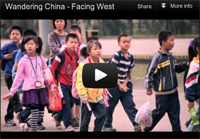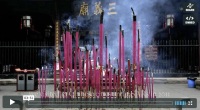Fareed Zakaria poses challenge to China to stand up and be counted as a superpower in global terms.
There are many loopholes in this assumption China does the world and its partners no good.
However if that is the impression opinion leader Fareed Zakaria forms his thoughts with, then China really ought to think about working on a more impactful positive image of themselves; one based on fact and not western narrative alone.
– – –
China is not the world’s other superpower
By Fareed Zakaria
Source – Washington Post, published June 6, 2013
In February 1972, Richard Nixon went to China and restored Sino-U.S. relations that had been broken for 23 years. During that visit, Nixon held a series of critical meetings with China’s premier, Zhou Enlai, and they discussed the broad strategic framework that would guide bilateral relations. President Obama’s meetings with President Xi Jinping this weekend have the potential to be a similarly historic summit — but with an important caveat.
China has always played a weak hand brilliantly. When Mao Zedong and Zhou met with Nixon and Henry Kissinger, China was in the midst of economic, political and cultural chaos. Its per capita gross domestic product had fallen below that of Uganda and Sierra Leone. Yet Beijing negotiated as if from commanding heights. Today, it has tremendous assets — but it is not the world’s other superpower, and we should not treat it as such.
The United States has been accused of having a confused, contradictory foreign policy, as each administration reverses its predecessor. This is often a mischaracterization, never more so than with China policy. Since Nixon and Kissinger opened the door, U.S. foreign policy toward China has been remarkably consistent over 40 years and eight presidents. Washington has sought to integrate China into the world, economically and politically. This policy has been good for the United States, good for the world and extremely good for China.
Please click here to read the full article at the Washington Post.
Filed under: Beijing Consensus, Charm Offensive, China Dream, Chinese Model, Communications, Culture, Economics, Finance, Foreign aid, Government & Policy, Ideology, Influence, International Relations, Mapping Feelings, New Leadership, Peaceful Development, Reform, Resources, Soft Power, Strategy, Tao Guang Yang Hui (韬光养晦), The Chinese Identity, The construction of Chinese and Non-Chinese identities, Trade, U.S., Washington Post













The Sharing Circle